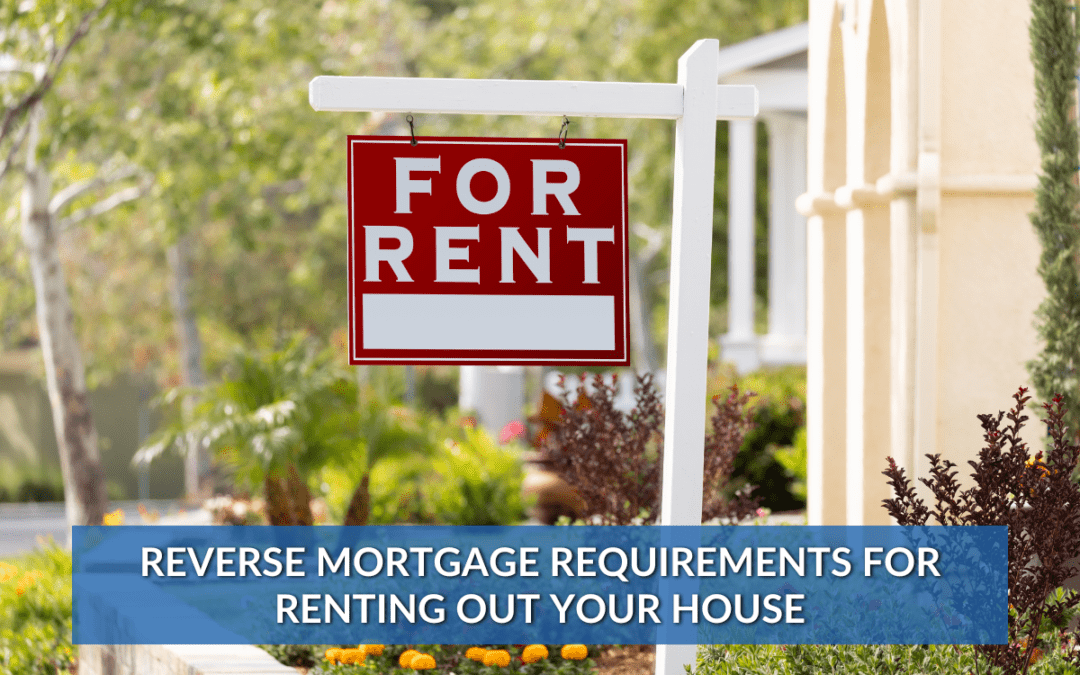Thinking of renting out your home but already have a reverse mortgage? Many homeowners consider turning their property into a source of income, but there are specific rules you need to understand if you’re in this situation. In this blog, we’ll break down the key requirements and restrictions for renting out a home with a reverse mortgage, so you can make informed decisions while staying compliant with your loan terms.
Reverse Mortgage Requirements for Renting out your Home
To qualify for a reverse mortgage in Oregon you must meet these requirements:
- You are at least 62 years old
- You have accrued significant equity in your home
- You will continue to pay your taxes, insurance, and any HOA dues
- You agree to maintain the home and keep it in good condition
- You receive HUD-approved counseling before obtaining a reverse mortgage
- You don’t already have a reverse mortgage
- The home must be your primary residence
Primary Residence Requirement
One of the most important and sometimes misunderstood requirements is that the home must remain your primary residence. This means you must live in the home for more than half of the year. Of all the reverse mortgage rules, this is the most common requirement that limits a homeowner’s ability to rent out their property. You are generally not allowed to rent out the entire home while living elsewhere, as doing so would violate the primary residence requirement. In some cases, such as a medical emergency, that time may be extended to 12 months, but it’s still critical that the home remains your primary place of residence.
You can rent out a room or have a roommate while still living in the home. This arrangement allows you to stay compliant with your loan agreement while also bringing in some rental income. However, it’s essential to check with your specific lender as individual lenders may have their own guidelines or restrictions about roommate or partial rentals.
Short-Term Rentals
If you own a single-family home and are considering short-term rentals with platforms like Airbnb, you should proceed with caution. Many lenders prohibit using the home as a short-term rental property. In addition, most reverse mortgage agreements limit how long you can be away from the home to no more than six months per year. In some cases, such as a medical emergency, that time may be extended to 12 months, but it’s still critical that the home remains your primary place of residence.
Multi-Unit Properties
If you own a multi-unit property, like a duplex, triplex, or small apartment complex, you may have more flexibility. As long as you live in one of the units as your primary residence, you are generally allowed to rent out the remaining units. This setup can be especially beneficial, allowing you to receive reverse mortgage payments while also earning passive income from tenants.
Is a Reverse Mortgage Right for Me?
Deciding whether a reverse mortgage is the right fit for you is a highly personal decision—one that’s best made with the support of trusted financial professionals. It’s a good idea to discuss your options with your accountant, financial advisor, estate planning attorney, and an experienced mortgage advisor to get a well-rounded understanding of how this type of loan may affect your long-term financial goals.
Reverse mortgages can be a powerful financial tool for homeowners aged 62 and older who have built significant equity in their homes. These loans allow you to convert part of your home’s equity into cash, which can be used for daily living expenses, medical costs, home improvements, or even to pay off existing debts. One of the most appealing aspects of a reverse mortgage is that it allows homeowners to stay in their homes while still gaining access to the funds they need, without taking on new monthly mortgage payments.
However, like any loan, reverse mortgages come with considerations. You’ll still need to pay property taxes, insurance, and maintain the home, and there are closing costs and fees associated with the loan. Additionally, a reverse mortgage can impact your estate and the inheritance you plan to leave to heirs, so it’s important to fully understand how the loan will affect your financial future.
A reverse mortgage may be a helpful solution for some, but it isn’t right for everyone. Do your due diligence, ask questions, and lean on professional advice to determine whether this type of financing aligns with your lifestyle, goals, and overall financial strategy.
Get Your Questions About Reverse Mortgages in Oregon Answered
If you meet the reverse mortgage requirements and would like to tap into the equity you’ve earned in your home, Strategic Mortgage Solutions can help. We provide comprehensive real estate lending and financing services for Oregonians statewide. If you’re considering using a reverse mortgage to supplement your income, send us a message or call 541-275-1148 to talk with an experienced Oregon mortgage advisor today.


